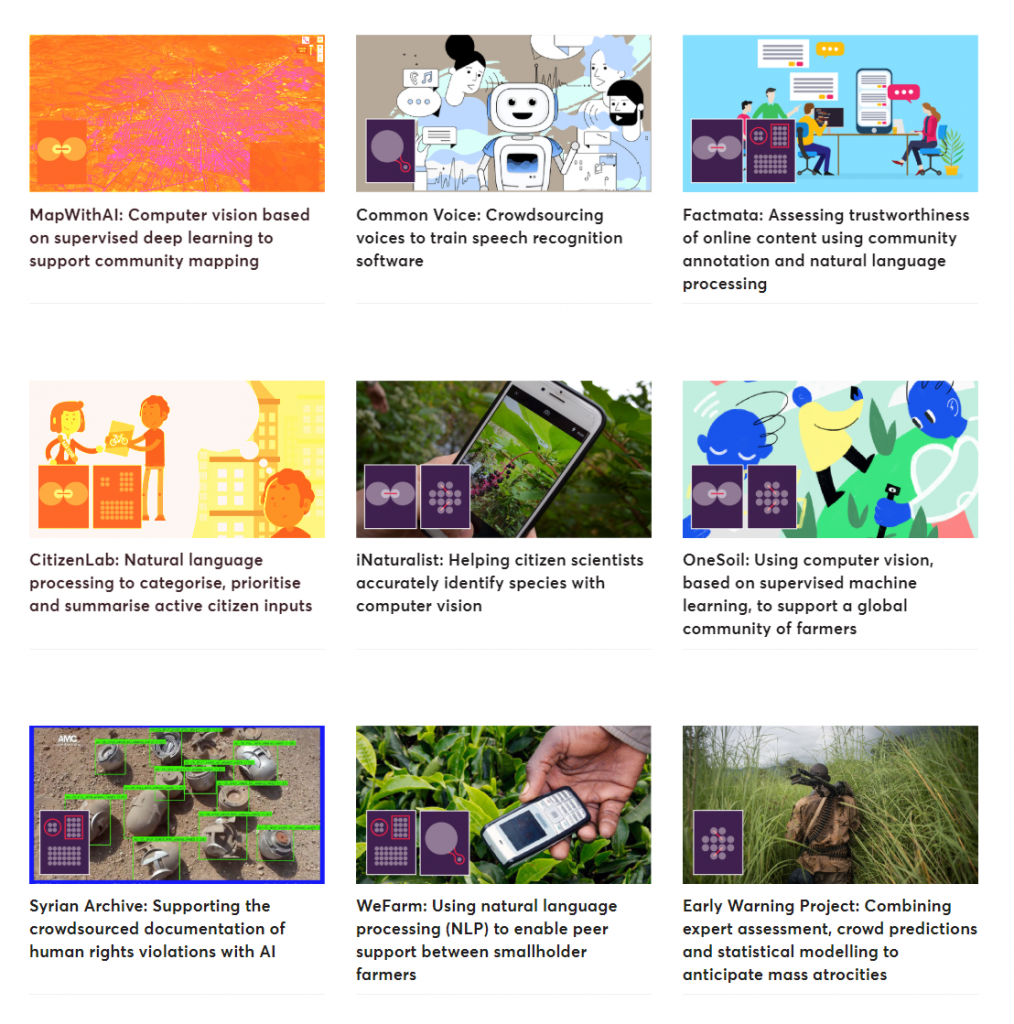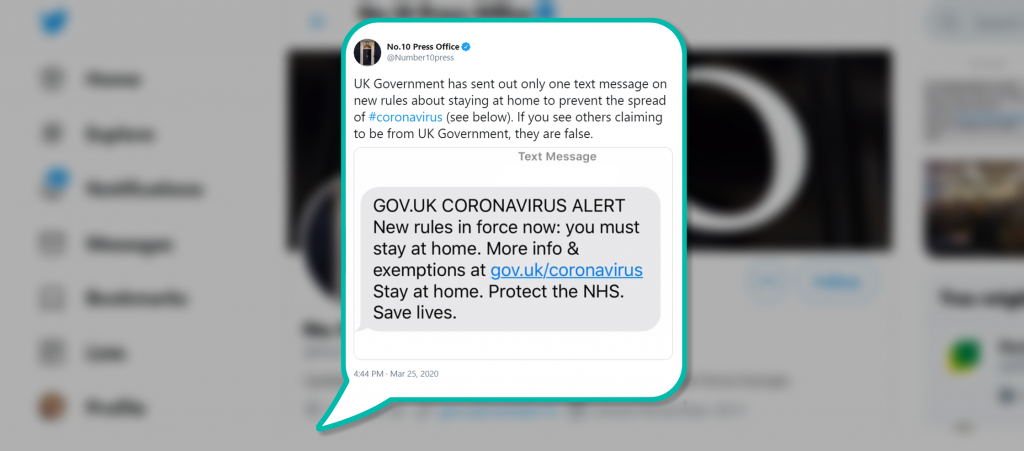It’s hard to imagine what our social response to a public health challenge at the scale of COVID-19 would have looked like just ten or fifteen years ago – in a world without sophisticated tools for remote working, diversified digital economies, and social networking opportunities.
Today, we see frontline doctors self-organising through social media to share diagnostic and treatment advice, DIY communities sharing open source solutions to help bolster supplies of ventilators and face masks, and the transition of many businesses to a physically distributed and temporally asynchronous workforce model.
The common enabler of all these activities is the internet. Recent years have seen innovation across all of its layers – from infrastructure to data rights – resulting in an unprecedented capacity for people to work together, share skills and pool information to understand how the world around them is changing and respond to challenges. This enhanced capacity is known as collective intelligence (CI).
The internet certainly needs fixing – from the polarising effect of social media on political discourse to the internet’s perpetual concentration of wealth and power and its poorly understood impact on the environment. But turning to the future, it’s equally clear that there is great promise in the ability of emerging technologies, new governance models and infrastructure protocols to enable entirely new forms of collective intelligence that can help us solve complex problems and change our lives for the better.
Based on examples from Nesta’s recent report, The Future of Minds & Machines, this blog shows how an internet based on five core values can serve to combine distributed human and machine intelligence in new ways and help Europe become more than the sum of its parts.

Source: nesta.org.uk
Resilience
Resilience is a core value for the future internet. It means secure infrastructure and the right balance between centralisation and decentralisation. But it also means that connected technologies should enable us to better respond to external challenges. Online community networks that can be tapped into and mobilised quickly are already an important part of the 21st century humanitarian response.
Both Amnesty International and Humanitarian OpenStreetMap have global communities of volunteers, numbering in the thousands, who participate in distributed micromapping efforts to trace features like building and roads on satellite images. These online microtasking platforms help charities and aid agencies understand how conflicts and environmental disasters affect different regions around the world, enabling them to make more informed decisions about distribution of resources and support.
More recently, these platforms have started to incorporate elements of artificial intelligence to support the efforts of volunteers. One such initiative, MapWithAI, helps digital humanitarians to prioritise where to apply their skills to make mapping more efficient overall.
The internet also enables and sustains distinct communities of practice, like these groups of humanitarian volunteers, allowing individuals with similar interests to find each other. This social and digital infrastructure may prove invaluable in times of crises, when there is a need to tap into a diversity of skills and ideas to meet unexpected challenges.
In the future, collective intelligence may also help improve our ability to cooperate and share resources in, such as food and energy, effectively between and within groups. At Nesta’s Centre for Collective Intelligence Design (CCID), we are supporting research that asks whether different levels of social connectivity within and between overlapping social groups on an online platform can improve coordination in response to collective crises. Experiments like this one, will help us to understand how the internet can be organised to support more collectively intelligent and resilient behaviours.
Inclusiveness
The need to consider a diversity of information, opinions and ideas is a key factor in the success of any collective intelligence initiative. This is true for small group interactions – which have been shown to require cognitive diversity of participants to improve problem solving, creativity and learning – as well as large-scale initiatives such as crowd predictions, where individuals making mistakes in slightly different ways ensures that the collective estimate holds. If we want to address challenges facing the whole of society, we need solutions designed for everyone.
One example of collective intelligence improving inclusiveness – while also taking an inclusive-by-design approach – is Mozilla’s Common Voice project, which uses an accessible online platform to crowdsource the world’s largest open dataset of diverse voice recordings, spanning different languages, demographic backgrounds and accents.

Ensuring diversity of contributions is not easy. It requires a deliberate effort to involve individuals with rare knowledge, such as members of indigenous cultures or speakers of unusual dialects. But a future internet built around an inclusive innovation ecosystem, products that are inclusive-by-design, and fundamental rights for the individual – rather than a closed system built around surveillance and exploitation – will make it easier for projects like Common Voice to become the norm.
Democracy
The future internet should have the ambition to protect democratic institutions and give political agency to all – but it should also itself be an expression of democratic values. That means designing for more meaningful bottom-up engagement of citizens, addressing asymmetric power relationships in the digital economy and creating spaces for different voices to be heard.
Both national and local governments worldwide are starting to appreciate the opportunities that the internet and collective intelligence offer in terms of helping them to better understand the views of their citizens. Parliaments from Brazil to Taiwan are inviting citizens to contribute to the legislative process, while cities like Brussels and Paris are asking their residents to help prioritise spending through participatory budgeting. The EU is also preparing a Conference on the Future Europe to engage citizens at scale in thinking about the future of the bloc, an effort that could be enhanced and facilitated through CI-based approaches like participatory futures. These types of activities can help engage a greater variety of individuals in political decision-making and redefine the relationships between politicians and the constituents they serve.
Unfortunately, some citizen engagement initiatives are still driven by tech-solutionism without a clear market need, rather than the careful design of participation processes that make the most of the collective contributions of citizens. Even when digital democracy projects start out with the best intentions politicians can struggle to make sense of this new source of insight, which risks valuable ideas being overlooked and diminished trust in democratic processes.
There are signs that this is changing. For example, the collective intelligence platform Citizen Lab is trying to optimise the channels of communications and interpretation between citizens and politicians. It has started to apply natural language processing algorithms to help organise and identify themes in the ideas that citizens contribute using its platform, helping public servants to make better use of them. Citizen Lab is used by city administrations in more than 20 countries across Europe and offers a glimpse of how Europe can set an example of democratic collective intelligence enabled by the infrastructure of the internet.
Trust
A closely related challenge for the internet today is the continued erosion of trust – trust in the veracity of information, trust between citizens online, and trust in public institutions. The internet of the future will have to find ways of dealing with challenges like digital identities and the safety of our everyday online interactions. But perhaps most importantly, the internet must be able to tackle the problems of information overload and misinformation through systems that optimise for fact-based and balanced exchanges, rather than outrage and division.
We have seen some of the dangers of fake news manifest as part of the response to COVID-19. At a time when receiving accurate public health messaging and government communications are a matter of life and death, the cacophony of information on the internet can make it hard for individuals to distinguish the signal from the noise.
Undoubtedly, part of the solution to effectively navigate his new infosphere will require new forms of public private partnerships. By working with media and technology giants like Facebook and Twitter, governments and health agencies worldwide have started to curb some of the negative effects of misinformation in the wake of the coronavirus pandemic. But the commitment to a trustworthy internet is a long-term investment. It will not only rely on the actions of policy makers and industry to develop recognisable trustmarks, but also on a more literate citizenry that is better able to spot suspicious materials and flag concerns.

Many existing fact checking projects already already use crowdsourcing at different stages of the verification processes. For example, the company Factmata is developing a technology that will draw on specialist communities of more than 2000 trained experts to help them assess the trustworthiness of online content. However, crowdsourced solutions can be vulnerable to issues of bias, polarisation and gaming and will need to be consolidated by complementary sources of intelligence such as expert validation or entirely new AI tools that can help to mitigate against the effects of social bias.
Sustainability
Undoubtedly, some of our biggest challenges are yet to come. But the internet holds untapped potential for us to build awareness for the interdependency of our social and natural environments. We need to champion models that put the digital economy at the service of creating a more sustainable planet and combating climate change, while also remaining conscious of the environmental footprint these systems have in their own right.
Citizen science is a distinct family of collective intelligence methods where volunteers collect data, make observations or perform analyses that helps to advance scientific knowledge. Citizen science projects have proliferated over the last 20 years, in large part due to the internet. For example, the most popular online citizen science platform, Zooniverse, hosts over 50 different scientific projects and has attracted over 1 million contributors.
A large proportion of citizen science projects focus on the environment and ecology, helping to engage members of the public outside of traditional academia with issues such as biodiversity, air quality and pollution of waterways. iNaturalist is an online social network that brings together nature lovers to keep track of different species of plants and animals worldwide. The platform supports learning within a passionate community and creates a unique open data source that can be used by scientists and conservation agencies.
Beyond the direct use of citizen generated data for environmental monitoring and tracking of progress towards the sustainable development goals, online citizen science and community monitoring projects can lead to increased awareness of sustainability issues and longer term pro-environmental behavioural change and for those involved.
Building the Next Generation Internet – with and for collective intelligence
To enable next-generation collective intelligence, Europe needs to look beyond ‘just AI’ and invest in increasingly smarter ways of connecting people, information and skills, and facilitating interactions on digital platforms. The continued proliferation of data infrastructures, public and private sector data sharing and the emergence of the Internet of Things will play an equally important part in enhancing and scaling up collective human intelligence. Yet, for this technological progress to have a transformative and positive impact on society, it will have to be put in the service of furthering fundamental values. Collective intelligence has the opportunity to be both a key driver and beneficiary of a more inclusive, resilient, democratic, sustainable and trustworthy internet.
At this moment of global deceleration, we suggest it is time to take stock of old trajectories for the internet to set out on a new course, one that allows us to make the most of the diverse collective intelligence that we have within society to become better at solving complex problems. The decisions we make today will help us to shape the society of the future.
Aleks is a Senior Researcher and Project Manager for Nesta’s Centre for Collective Intelligence Design (CCID). The CCID conducts research and develops resources to help innovators understand how they can harness collective intelligence to solve problems. Our latest report, The Future of Minds & Machines mapped the various ways that AI is helping to enhance and scale the problem solving abilities of groups. It is available for download on the Nesta website, where you can also explore 20 case studies of AI & CI in practice.
